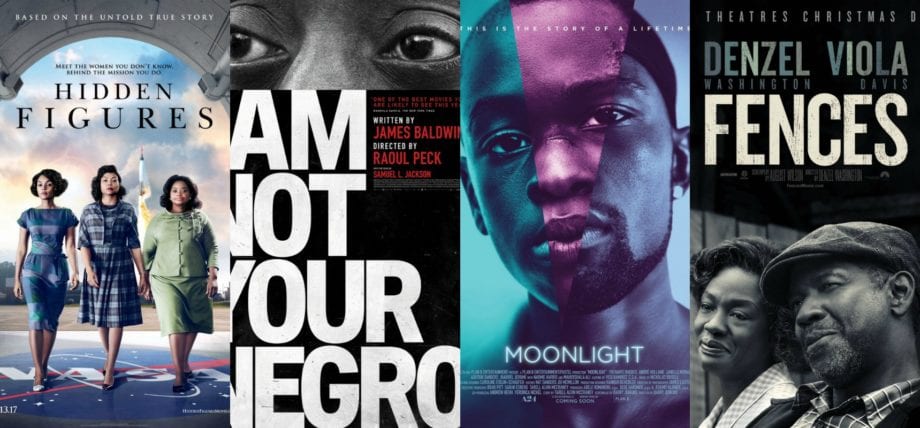by The Cowl Editor on December 6, 2018
Arts & Entertainment
by: William Burleigh ’19 A&E Staff

Last week, The Cowl discussed Widows, a new gritty heist thriller from director Steve McQueen, which was released on Nov. 16. Widows—which follows the wives of four thieves who die in an explosive armed robbery attempt in Chicago and their scheme to finish the job after their husbands’ deaths—has been praised for its direction, screenplay, and performances.
But ultimately, Widows’ greatest achievement is its ability to offer black actors a cinematic voice through a form of storytelling which they are not frequently offered. Far too often, Oscar-caliber films depicting black stories focus on a far-too-narrow definition of what it means to be authentically black. These films tell stories about racism and racial struggle, which is not necessarily a bad thing, as they are issues that need to be discussed. However, while these types of films are oftentimes told through an uplifting or optimistic lens, they are almost always rooted in sorrow and historical oppression.
Notable Oscar-nominated films in recent years that exemplify this issue are The Help (2011), Django Unchained (2012), Selma (2014), Hidden Figures (2016), Fences (2017) and McQueen’s own 12 Years a Slave (2013). All of these films were well-received and highly acclaimed. But each of them centers around stories that take place during either the pre-Abolition time of slavery or the pre-Civil Rights era of segregation.
Simply put, these films focus mainly on black struggle, without looking beyond themes of prejudice in order to pursue the more entertaining, hopeful stories afforded to white actors and filmmakers. This trend is further exemplified this year with Oscar candidates such as Green Book, BlacKkKlansman, and If Beale Street Could Talk.
Green Book, set in 1962 in the deep South, explores the relationship between Dr. Don Shirley, an acclaimed black pianist (Mahershala Ali), and his white chauffeur. BlacKkKlansman, which takes place in the early 1970s, focuses on an African-American police officer (John David Washington) who infiltrates the Ku Klux Klan. If Beale Street Could Talk, adapted from a James Baldwin novel and set in the early 1970s, examines issues in the criminal justice system through the story of a young woman who sets out to clear the name of her wrongly accused husband.
These films have all received acclaim and certainly deserved production. However, their focus on telling stories that are almost exclusively interested in exploring the complications of race and racism reinforces the incorrect and harmful notion that tales of racial adversity and suffering are the only avenue through which black creatives can obtain prestige.
Consequently, films that are able to subvert this trend by giving black actors roles in films that do not solely center around racism should be lauded for their achievements. Thankfully, there have been several examples recently, with Widows being a prime example.
While Widows does offer insightful critiques on classism and police brutality, they are themes more subliminal than heavy-handed and are presented in a subtle manner that never overwhelms or distracts the viewer from the primarily thrilling storyline. Black Panther, one of the most acclaimed films of 2018, is another example of a film with a positive message and Oscar ambitions.
It touches on the history of slavery and white supremacy, but never lets these themes hijack the film’s main purpose of being an upbeat and exciting superhero adventure. It celebrates black excellence instead of becoming overly mired in the history of oppression. Likewise, Michael B. Jordan’s Creed franchise is a series that emphasizes boxing talent over racial identity. The titular Adonis is never limited or constricted by his blackness, but instead judged solely on his ability to become a boxing champion.
Overall, stories about racism and black struggle deserve to be told. They serve as stirring, emotional, and important reminders of the historical struggles that black people have always faced in America. However, putting an emphasis on crisis in black storytelling only contributes to an inauthentic and incomplete cinematic representation of what it means to be black.
Black filmmakers should have the creative freedom to expand the boundaries of black story-telling by eschewing the limited and stereotypical understanding of what constitutes a film that is Oscar-worthy and black.
Films about the lives of people of color do not need to primarily center around slavery, oppression, or racial struggle in order to be considered prestigious. Widows, Black Panther, and Creed are proof of that.